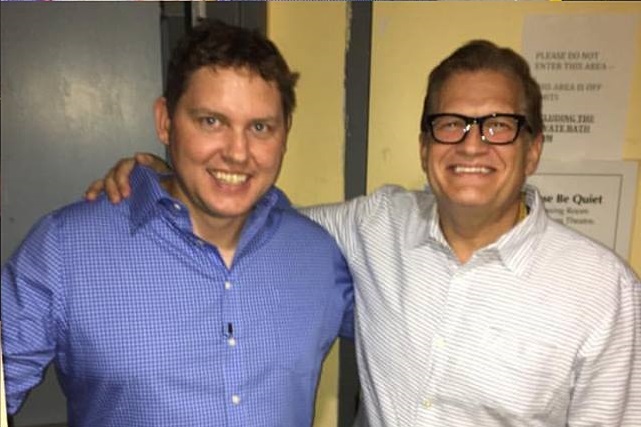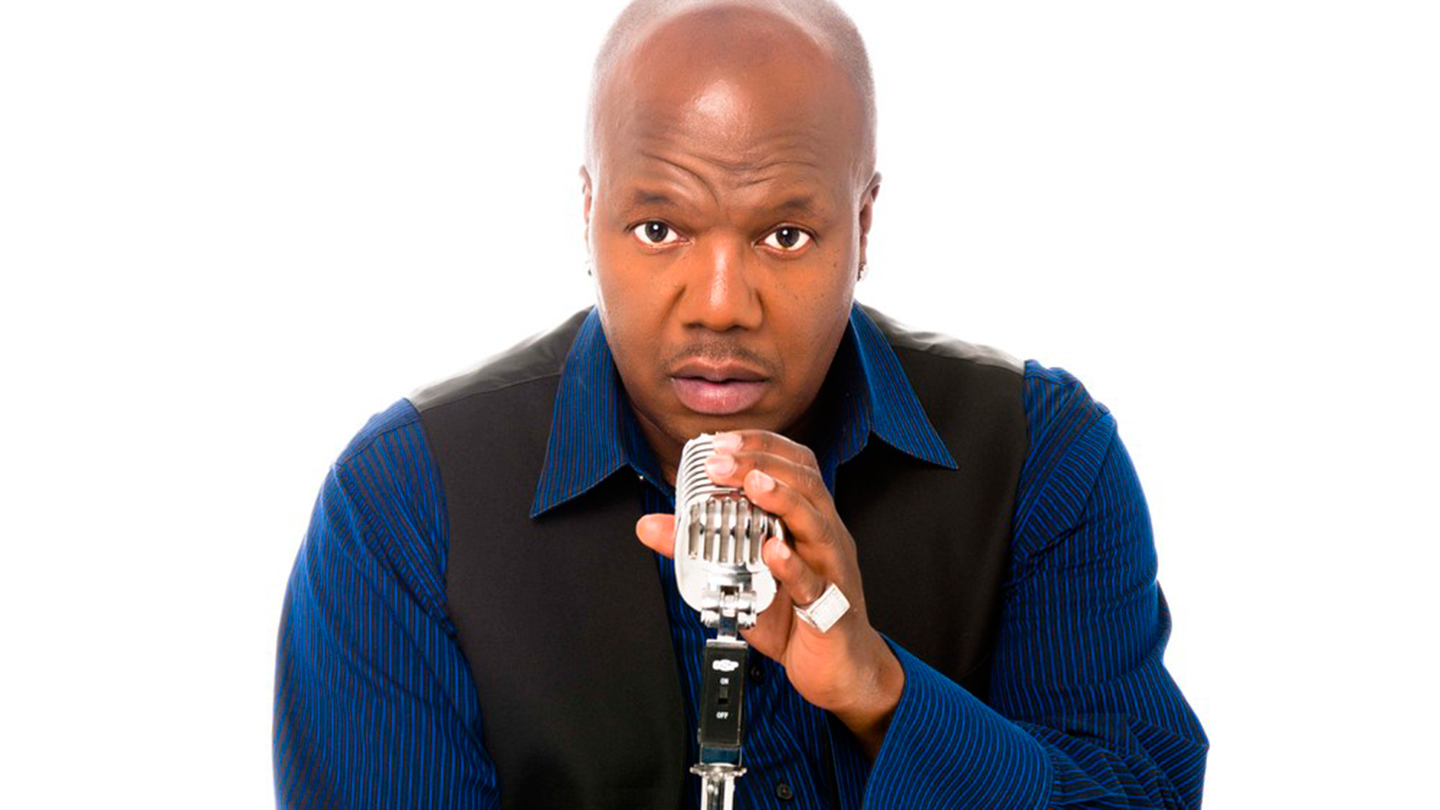Tom Clark is a stand-up comedian and actor who has been in comedy for 23 years. His comedy credits include TBS’s Conan, CBS’s Late Late Show, The Bob & Tom Radio Show, and Comedy Central’s Premium Blend, Montreal’s New Faces at the prestigious Just For Laughs Comedy Festival, The Capetown Comedy Festival in South Africa; and acting roles on NBC’s Outsourced, TNT’s The Closer, Hallmark’s TV-movie The Wish List, and films Big Miracle and Freaks of Nature. He recorded his first stand-up comedy special in May 2017 in California, with Drew Carey introducing him onstage.
This essay originally appeared on his website and is reprinted with his permission.
1. Focus on the people that like you.
This may seem obvious, but I spent a lot of time trying to get into comedy rooms or scenes that clearly didn’t want me to be a part of it. When I focused my energy on the rooms that liked me and my style of comedy that’s when I thrived and I was able to focus my energy on my comedy not on the frustration of not booking certain rooms.
2. Ask.
People can’t read your mind and people don’t know what you want, so ask them. The worst that can happen is they say no. When I was looking for a place to teach my stand-up class, someone suggested the Improv in Hollywood. It seemed like a long shot, but when I asked them they were very receptive. When I wanted someone to come in to introduce me for my stand-up special I decided to ask Drew Carey. He followed me on Twitter and would retweet me here and there, so I figured it was worth a shot. He ended up agreeing to do it. You never know if you don’t ask.
3. Follow Through on Everything
I always follow up on every lead. Whether it’s a fellow comedian or a boozy fan after a show who wants me to do their company party (turns out they were fired weeks ago). I got a random e-mail once from a DJ out in South Africa and he asked if I could send him a CD. I obliged and he wanted to know if I ever performed in South Africa. I told him I didn’t know how I’d do it and he suggested I contact the Cape Town Comedy Festival via their website. I e-mailed them and after sending a video, they booked me and paid me for their monthlong festival. It remains one of the best experiences of my comedy career.
4. Get Paid
This seems obvious, but once you finish a gig sometimes the hardest thing to do is get paid after. I had one acting gig where they promised me $500 and after doing the gig I only received half the money. After avoiding my call I went to the production company’s office and asked for my money. They showed me an invoice for $250, but they had clearly crossed out the $500. Luckily I had a copy of the invoice with the amount not crossed out. I ultimately had to contact the advertising agency who booked me and they forced them to pay the remaining amount (you can watch the video here. I’m the British soldier dancing at the end…it made zero sense.).
I had another company that had been re-airing a comedy set of mine over and over. I went to my union and nothing happened. Then myself and another comic filed a lawsuit and after 5 years we all got paid. Unfortunately comics still work for this company.
Save your contracts and all the paperwork. If they don’t give you paperwork ask for it or make your own and have them sign off on it. For bigger paying gigs always ask for a deposit that will cover your expenses and then some if they cancel.
As frustrating as it may be to not get paid on time or have a check bounce give the person the benefit of the doubt. I’ve seen comedians get upset and post on social media about what a jerk the person is and watched any chance of them getting paid go out the window. It’s happened to me, but I always try to be understanding and I’ve been lucky enough to always get paid.
5. Sometimes you’re just not ready.
I’ve experienced the frustration of not being accepted to a comedy festival or booked on a late-night show and sometimes you’re just not ready for it. They’re not wrong, they know what works for them. The only thing you can do is move forward and continue to get better.
6. Be a good worker.
It goes both ways if you want respect from club owners, bookers, etc. be reliable. Be someone they don’t have to worry about. It’s your responsibility to get to the gig. If they want you to work clean, it’s up to you to deliver. Don’t give them an excuse not to book you.
7. Deliver a product you’re proud of.
I remember when I started out, I’d hear a lot of comics when I was starting out saying they hate their acts. I never wanted that to happen for me. There was a time when I was on the road a lot I started to understand how that can happen. You’re doing a lot of shows and the venue grades you and the grade is given to the booker. If the owner doesn’t like you or your act you’re screwed, so sometimes you end up playing it safe and just play your greatest hits. That’s not how a comedian grows. I remember working with Mitch Hedberg and he told me how when he was starting out he’d know at the start of the week he’d never be booked at the club again because his act was so odd. But he stuck with his vision and became very successful. I was lucky to find venues that liked what I did (even when I wasn’t the best) and they stuck with me.
8. Invest in yourself.
This is something I wish I had done more early on in my career, but I’m glad I’m doing it now. I used to teach stand-up comedy through a theater and the theater would get most of the money. Now I teach independently and rent the space on my own. I assume all the risk, but I also reap all the reward. The same with shooting my stand-up special, I could’ve waited or hoped someone would come along, but decided to do it on my own. Doing things independently gives you more a sense of control.
9. Do things on your own terms.
I think it’s important to be unconventional in your approach to stand up. It helps you stand out. There’s nothing wrong with playing an instrument or juggling or doing magic. Steve Martin did all of these and was arguably one of the most influential comedians in stand-up.
I was also lucky to start off in Milwaukee where there were very few comics at the time. No one told you how to do comedy, which was good and bad. Good because it allowed for creative freedom (I sang about a potato, pretty groundbreaking stuff) and bad (I once told jokes shirtless with a wrestling mask on, never acknowledging my outfit.—bad idea.) Succeed or fail on your own terms, that way you’ll never have regrets.
10. Do everything.
Act, write, sing, dance. One thing that made my comedy career easier or at least more enjoyable was that I was doing multiple projects: improv, acting, stand up, volunteering. If one thing wasn’t going well, one of the other things would be. They say stand-up requires a singular focus, but I think to be truly happy it’s important to be well rounded in your life and enjoy what you do. Don’t limit yourself. Focus on what makes you happy, not just success.



